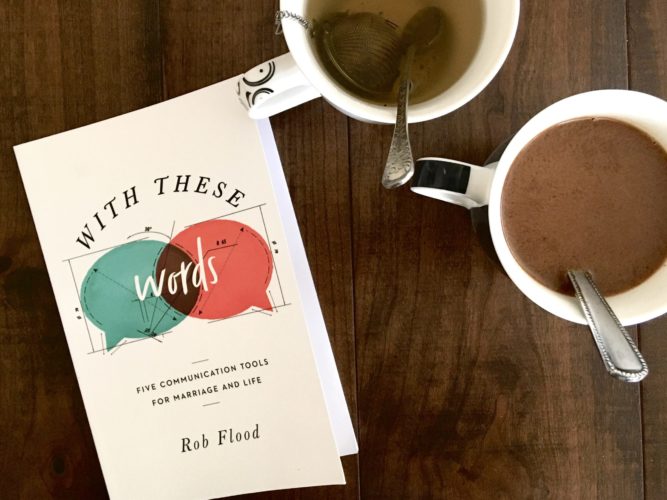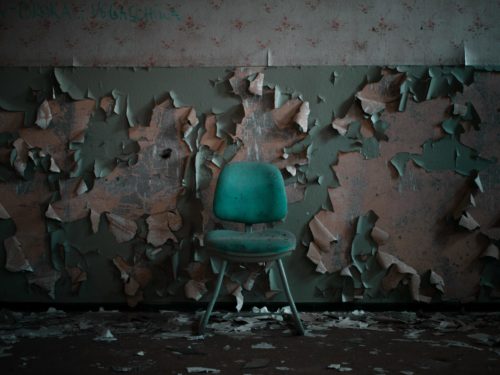These are strange days right now.
With most of the world in various stages of lockdown, most of us are spending more time at home than usual. There’s already speculation that the traffic to porn websites is bound to increase. After all “what are people supposed to do?”
If you’re an addict, a user, a recovering user, or even a recovered user of pornography, days like these can be especially challenging.
If you have a trigger, you’re probably encountering it multiple times a day.
If you don’t think you have a trigger, you’re likely about to discover you actually do.
Boredom. Loneliness. Fear. Isolation. Anxiety. Stress. Accessibility. The list goes on, and they’re all here. Right now.
If this whole “the whole world needs to lockdown to kill a virus” scenario had happened when I was a teenager… it would have been really bad news. At the very least, I had school to keep me distracted for a few hours a day. Most of today’s high school girls- one of the fastest growing demographics of porn consumers- don’t currently have that luxury. Stuck at home, with the phone, and the apps, and the desire to be connected.
This is going to be a time of intense struggle for nearly everyone who struggles.
But while it is a time of struggle, it doesn’t have to be a time of defeat. So, let’s take a few minutes to talk about triggers, what they are, and how you can deal with them.
Ideally, I tell people to have a strategy and put things in place while they are strong to protect them in their weak moments. For some of you, though, you may be well past the “strong” moment. So, we’re going to take a different approach here, assuming you are in a bit of a crisis management mode.
Let’s talk about navigating triggers with grace.
And to prevent this from becoming a book, I’ll talk about finding your triggers in this post and facing them in the next one. (If you want to be sure you catch it, you can follow the page on Facebook or sign up for email.)
What is a trigger?
Every “expert” approaches these differently. The word “trigger” is conceptual so people are going to bring their unique perspectives. And now, of course, it’s been hijacked by modern social media meme-speak. #triggered
The dictionary definition most applicable is “something that precipitates a particular event or situation” (from thefreedictionary.com). To precipitate means “to hasten the occurrence of.”
So, if we want to boil down a spelled-out definition for the person struggling with porn, a trigger is something that drives me to pornography. I feel like that’s a fair definition, but it could use a little unpacking and clarification.
It’s important to understand a trigger is not temptation. In fact, if you take nothing else away from this, remember that.
We encounter triggers in many areas of our lives, not just negative. If I eat one of my Gramma’s cookies at Christmas time, the smell and sights trigger a memory of being in her house while she baked. A certain song triggers a memory of my wedding. If my husband hugs me, it may trigger feelings for him.
When it comes to your struggle with pornography specifically, a trigger could be something that “sparks a memory of pornography.”
Think of a trigger as the first thing that draws your attention to pornography.
Understand your internal triggers.
Triggers can be emotional/mental or environmental.
Another way to say that is that triggers can be internal (something generated within my heart, soul, body, or mind) or external (something said, seen, or done). When you’re trying to identify yours, you’ll want to consider both types. We often focus on the “internal” ones (this is the focus of addiction-recovery models like H.A.L.T) and neglect the external.
Often, when triggers are mentioned, people are talking about those internal triggers. The H.A.L.T. model of thought is the idea that if you feel yourself being pulled toward negative thinking or habits (self-harm, drinking, etc), figure out if you are hungry (literally or figuratively), angry, lonely, or tired. If you meet that need, then the drive toward the negative behavior will stop.
While this particular approach wasn’t helpful in my freedom from pornography, it continues to be helpful in my battle against shame and negative thoughts. If I find myself wallowing in a pit of despair, it’s usually because of one of these four things (as a new mom, it’s more often than not the “t.”)
Another thing you might have heard about is “coping.” Pornography is often labeled a coping mechanism. Coping mechanisms or coping strategies are how we have learned to respond to and mitigate stress or negative/uncomfortable experiences and emotions. Pornography is an example of a maladaptive coping mechanism, meaning instead of helping you adapt, it is used to escape. Examples of healthy coping strategies would be going for a run, talking to a friend/counselor, or even prayer. (Sound familiar? These are often suggested to fight pornography. This is precisely why.)
If you find yourself running from something into the dark, quiet, anonymity of pornography, then you likely have an internal trigger.
In my experience, it doesn’t have to fall under the H.A.L.T. categories. I often found myself running to pornography when I was sick or stressed but I also ran to it to “reward myself” when I was happy.
To figure out your emotional/mental (internal) triggers, ask yourself if pornography (or lust, fantasy, or masturbation) feels like an escape.
If the answer is yes, then ask yourself, “from what?” If “escape” doesn’t quite seem like the right word, ask yourself if you are using pornography as a “numbing agent.” If the answer is yes, then you have to ask yourself what it is you’re trying to numb. More often than not, that’s a place that’s going to need some healing before you’ll be able to fight well.
Identify your external triggers.
This is the one we often miss when we talk about freedom and recovery. I think especially as Christians, we get so focused on the internal work. But remember, triggers aren’t temptation. This is where the “heart work” of the church has to learn to play nice with the biological realities of who we are as humans.
While internal triggers engage our figurative hearts, external triggers engage our literal brains. If you’ve been exposed to, struggled with, or relied on pornography (or lust, fantasy, or masturbation), those experiences become memories, and those memories are just as real and just as easily recalled as baking cookies in the kitchen with Gramma.
Triggers don’t have to be “bad.”
In fact, if you would say your trigger itself is bad, I’d say you might need to walk your path back a couple steps because you may be mistaking your trigger for your first step in falling. For instance, you might say, “Well, erotica is a trigger for me.” That’s incorrect. Erotica is the first step in falling. You need to rewind the tape and figure out what first directed your thoughts and focus toward erotica.
Triggers can be obscure.
For instance, as I was assessing my triggers while trying to break free, I realized that a huge bottle of lotion I had was a trigger. I had bought it before I went off to college, convinced that the entire 32 ounces would be enough to last all four years. It was the only lotion I used during my first year of college. That’s also when my porn addiction was at its highest, so somehow, in my brain, the smell of my mango cocoa butter body lotion got tangled up with pornography. Any time I used it, I found myself oddly desiring pornography. Once I realized the connection, as ridiculous as it seemed, I threw out the lotion.
Triggers can be conditional.
Sometimes, triggers don’t stand alone. They are a “combo.” A personal example of this that I share often is having a laptop in my bedroom. Being in my bedroom wasn’t a trigger (which is good). Having a laptop wasn’t a trigger. Bringing the laptop (or the cell phone) into the bedroom was a recipe for a struggle. If I added headphones to that, it was sure disaster. To this day, I make it a habit of keeping tech out of the bedroom.
Triggers might be unavoidable.
This one might ruffle a few Christian feathers, but remember, triggers are not temptation and they are not sin. They are not bad, and while I am a huge proponent of avoiding the triggers you can, I am also aware that there are some we could but shouldn’t.
For example, many wives have emailed me sharing that being in bed with their husbands is a trigger. I have found this to happen at times in my own marriage. (Which blows a hole in the popular “I struggle with porn because my spouse doesn’t give me enough sex” theory.)
Now, I could choose to avoid that trigger and tell my husband that, for the sake of avoiding triggers, I will no longer be intimate with him. But again, triggers are not wrong. And in this case the cost for avoiding the trigger is not worth it.
I’m going to unpack this more in the next post, but you could choose to go through life avoiding none of your triggers, and that’s fine. You could choose to live with all of them.
Personally I would rather avoid some triggers if it means having energy and strength to fight for the moments that matter.
I will gladly never buy that lotion again and never have a cell phone in my room if it means I’ll be able to better cope with the trigger that sometimes comes with being with my husband.
Triggers can be completely out of your control.
It’s easier to deal with external triggers because we can change much of our environment. But sometimes there’s little we can do to change or avoid a trigger. For instance, ladies, many of us find ourselves triggered at different points in our menstrual cycle. There’s very little, basically nothing, we can do to change that. Hormones are a nuisance at times, and as a new mom, I can tell you that they have more to do with sex and drive than I ever realized.
I don’t mean this in a helpless “the devil made me do it” way. Remember, triggers are not temptation and they are not sin. They are the things that first draw your attention toward pornography (or lust, fantasy, or masturbation). There are still choices you have to make in response to the triggers, so even if the trigger itself is something you can’t control, you can always control the choices that connect “trigger” to “action.”
I’m really excited to tackle that with you in the next post, and to provide a worksheet many of you have been asking for for quite some time.
For now, though, your “homework,” if you will, is to identify your triggers. What things internal or external seem to turn your focus toward pornography (lust, masturbation, or fantasy)?
Remember, the triggers themselves aren’t necessarily bad.
If you’re really struggling to pinpoint them, look at the last time you fell to pornography and trace the process back. What were the circumstances that led to that choice? If you see a common pattern, you might have found a trigger.
We’ll talk about what to do with it next.
If you’re really struggling to identify or work through this, I highly recommend speaking to a counselor. They can help untangle some of the thoughts and emotions that can trap us.
PS: My friend, Crystal (author of Dirty Girls Come Clean) offers online coaching/pastoral counseling for these issues, as well as a new group recovery launching in just a few days! I don’t get paid to tell you this. Crystal and I have been in this field for over ten years now and I am passionate about her heart to help. She is gifted in ways I am not; counseling is one of them. She has the resources and the training to be able to help in ways I never could. If you’ve been looking for someone to talk to who gets it, please check her out.




